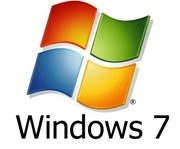 Microsoft has confirmed this week that it expects Windows 7 to ship before the end of 2009, in time for the holiday season.
Microsoft has confirmed this week that it expects Windows 7 to ship before the end of 2009, in time for the holiday season.
The news comes one week after Microsoft made available the Windows 7 Release Candidate. A few notable PC builders, such as Acer, have even been publicly stated they believe a final version of Windows 7 will be available in October.
Veghte also says that Windows 7 and Windows Server 2008 R2, when used together, will "deliver significant cost savings and productivity gains with features such as DirectAccess and BranchCache. Microsoft is making sure to tell businesses—now more than ever—about how the new versions of its software can help save them money in the long run."











